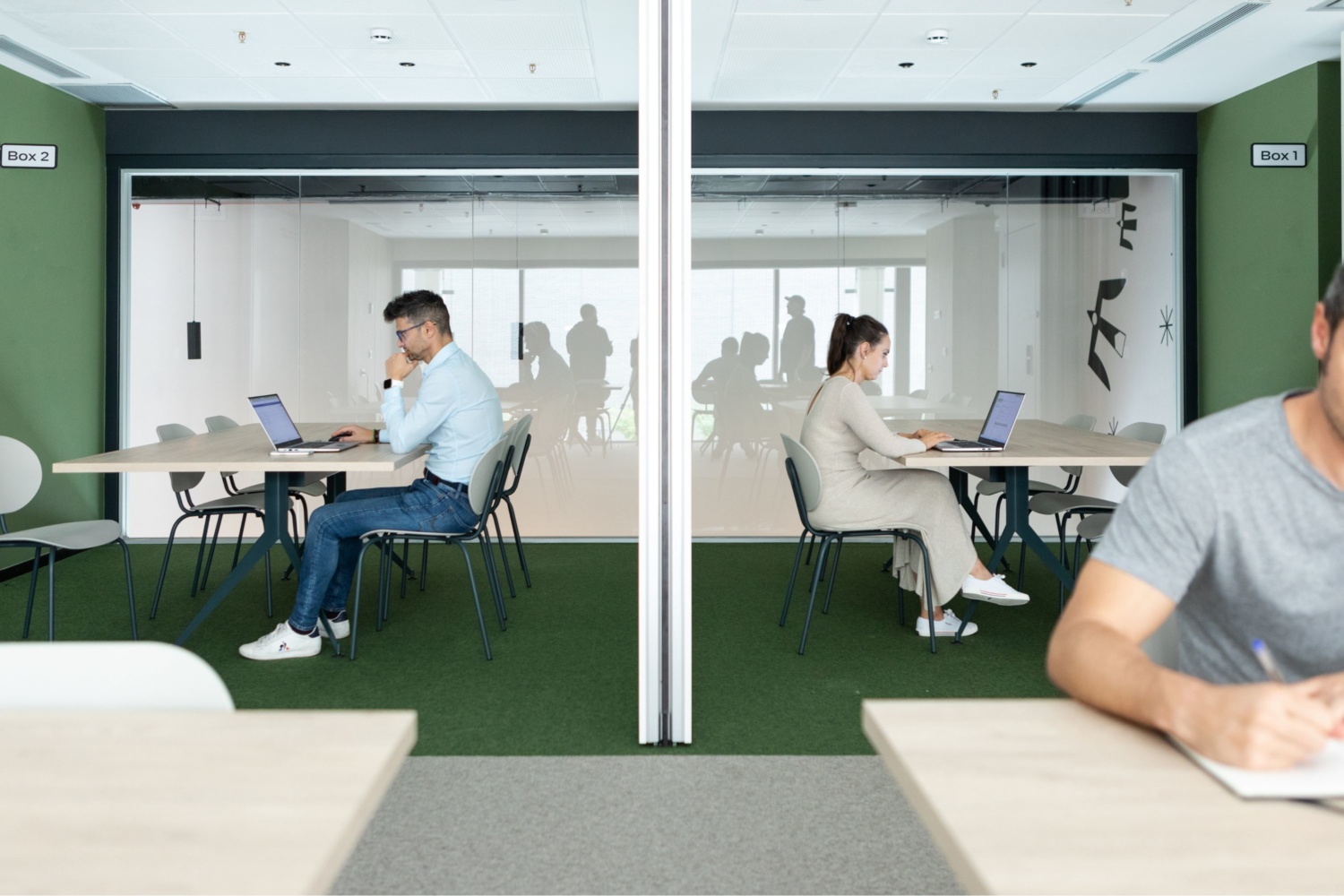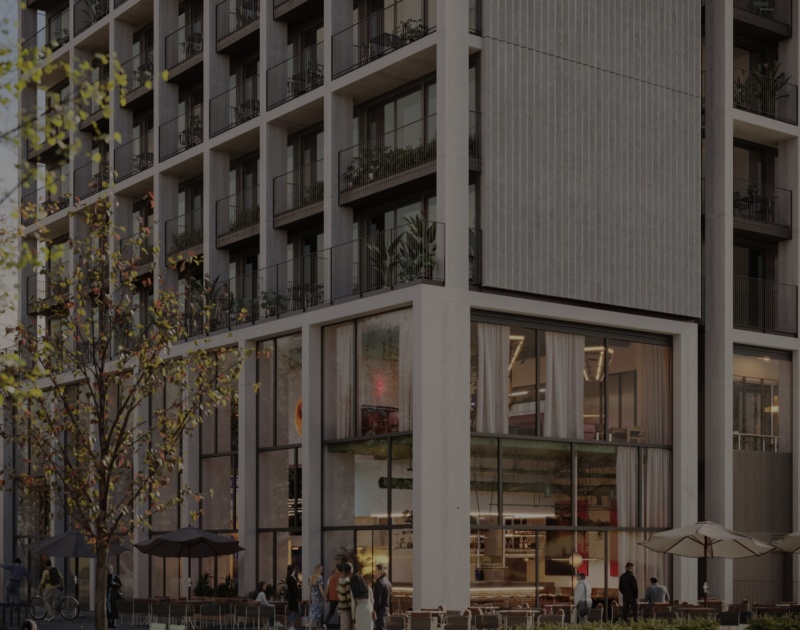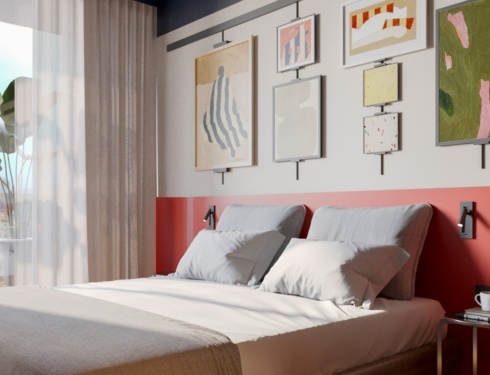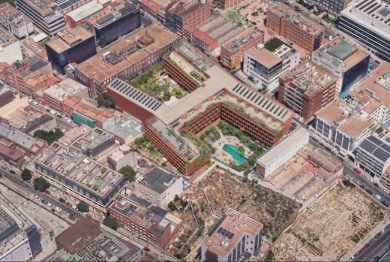
Discover how remote work has opened new opportunities for real estate investors seeking profitability, sustainability, and international reach
The COVID-19 pandemic forever redefined the way we work, live, and move around. What used to be the exception—working from home—quickly became the norm. Along with it, the real estate sector experienced one of the deepest transformations in its recent history. Today, in 2025, remote work has not only solidified its position as a standard work model but has also given rise to a new real estate paradigm: Flex Living.
This housing model, which combines flexible stays, integrated services, strategic locations, and design adapted to modern lifestyles, has found fertile ground in Spain. Cities are reinventing themselves, investors are diversifying, and digital nomads are choosing environments that offer connectivity, community, and quality of life. Throughout this article, we analyze why the rise of remote work has been key in this structural change and what opportunities it brings for real estate investors.
The Rise of Remote Work Transforms the Real Estate Market
The pandemic acted as a catalyst for change in the global work model. The need to maintain economic activity without physical exposure accelerated the widespread adoption of remote work, establishing a new focus on flexibility, mobility, and employee well-being.
This evolution has had a direct impact on the real estate sector, which has seen new housing opportunities emerge. Living and working from anywhere is no longer a utopia but an accessible reality thanks to solutions like Flex Living.
Growth of Remote Work Since 2020
In 2019, only 4.8% of workers in Spain regularly worked from home. However, according to the report ‘La Sociedad Digital en España 2020-2021: El año en que todo cambió’, this figure skyrocketed to 37% in 2020. Although the pandemic is now behind us, remote work has not declined: according to data from Spain’s National Statistics Institute (INE) and Eurostat, in 2024, 15.4% of Spanish employees still worked remotely on a regular basis. This is 1.3 percentage points higher than in 2023, though still below the European average (22.6%).
This new lifestyle has directly influenced housing demand. It’s no longer just about finding a place to sleep, but a hybrid space that works as a home, office, and hub for professional connection.
The Impact of Remote Work on Quality of Life
This change has significantly affected the daily lives of millions of workers. By eliminating commuting, many people have regained valuable time to dedicate to personal, family, or wellness activities. According to the Cisco Global Hybrid Work Study, 64.2% of employees saved at least 4 hours per week in a hybrid environment, while 25.8% saved 8 hours or more. This improvement in time management has led to greater job satisfaction and reduced stress associated with the urban pace of life.
There has also been a population shift from large cities to mid-sized municipalities or well-connected rural areas, encouraging residential decentralization. According to Idealista, during the 2020 lockdown, the share of housing searches in municipalities with fewer than 5,000 inhabitants increased from 10.1% to 13.2%. This has created a new residential map where quality of life takes precedence over proximity to the workplace.
Remote work has also influenced consumption and self-care habits. Working from home has enabled people to improve their diet thanks to home cooking, as well as allowing more rest and physical activity. From a mental health perspective, it has enhanced autonomy, reduced interpersonal tensions in workplaces, and increased the sense of control over one’s environment.
At the same time, remote work has contributed to improved family balance. With more flexible work and rest schedules, many people have been able to spend more time with their children, better care for dependent relatives, or actively engage in household responsibilities. This closeness has strengthened family bonds and contributed to greater emotional stability.
All these changes have created new housing demands: the home must also be an efficient space for work and well-being. This has given rise to the concept of “hybrid homes”, properties that integrate workspaces, high-quality connectivity, ergonomic design, and social areas. Flex Living directly addresses this trend, offering housing solutions that match evolving professional and personal lifestyles.
Sustainability and Efficiency: Key Drivers of Change
Remote work has not only transformed how we live and work but has also become an ally of sustainability. By reducing daily commuting and minimizing energy consumption from physical offices, remote work significantly contributes to lowering emissions and achieving environmental balance. This reality aligns with European regulations, ESG (Environmental, Social, and Governance) policies, and the criteria guiding responsible investors.
Remote Work as an Environmental Ally
In the first four months of 2020, global lockdowns prevented the emission of one billion tons of CO₂. Awareness of environmental responsibility is—and must continue to be—greater than ever. Transforming commuting patterns is crucial, as private vehicles and daily trips to workplaces are major contributors to air pollution.
A Greenpeace analysis showed that implementing just one day of remote work per week (for jobs where this is possible, roughly a third of them) would reduce CO₂ emissions by 406 tons daily in Madrid and 612 tons in Barcelona. Two days would double the figures to 799 tons and 1,153 tons, respectively.
For example, Kategora promotes complexes with Green certifications, such as Kora Green City in Vitoria-Gasteiz and Kora Lluna in Valencia. Kora Green City, a hotel complex within the company’s “Flex” line and operated by Kora Living, holds Passivhaus certification and uses renewable energy sources like aerothermal, geothermal, and solar power (generated by 140 m² of rooftop solar panels). This allows 97% of its energy to be clean. It has also reduced energy consumption by 76% and avoided 164 tons of CO₂ emissions.
Meanwhile, Kora Lluna, located in Valencia’s Cabanyal neighborhood and also part of the “Flex” line, received a BREEAM® “Very Good” rating for its innovative and environmentally respectful approach, becoming a benchmark for urban sustainability. Lourdes Soriano, Levante’s Technical Director, highlights that strategies to minimize environmental impact—through certified materials and passive design techniques—were integrated from the project’s early stages.
Flexible Real Estate Assets for Digital Nomads
The rise of the digital nomad has energized Spain’s real estate market in recent years. Mid-sized cities and regions with strong digital connectivity, cultural offerings, and natural surroundings have become magnets for this professional profile. This has encouraged developers and operators to create new types of housing, such as residential complexes with hotel-like services, flexible contracts, and communal spaces designed for work and socialization. Flex Living has thus emerged as a direct response to a global need: providing housing tailored to a mobile, connected, and demanding lifestyle, while ensuring sustainable returns for investors.
What Do Digital Nomads Look for in a Property?
Digital nomads are professionals who combine remote work with constant mobility. Predominantly young and cosmopolitan, they seek experiences that integrate professional growth, personal well-being, and connection to international communities. Their high geographic mobility makes them value environments where they can settle quickly, without complex paperwork or long-term commitments.
When choosing accommodation, their priorities go beyond aesthetics. They look for efficiency, connectivity, and opportunities for social interaction—spaces that support both productivity and integration.
Some of their most valued requirements include:
- High-speed internet connection
- Coworking spaces or communal work areas
- International community and networking opportunities
- Active lifestyle: proximity to nature, sports facilities, leisure activities
- Good climate and inspiring cultural environment
- Flexible housing without rigid contracts or heavy guarantees
The Flex Living model meets these expectations perfectly: move-in-ready homes, fully furnished, with included services (cleaning, laundry, maintenance), strategic locations, and digitalized operations that allow users to book, check in, and manage their stay quickly and seamlessly. This adaptability, combined with sustainability, makes Flex Living the ideal choice for those seeking freedom of movement without sacrificing quality or comfort.
Flex Living: The Real Estate Response to the New Remote Work Lifestyle
Flex Living emerges as a housing solution specifically designed to address the new demands of remote professionals. It combines the flexibility of short-term rentals with the convenience of integrated services, creating spaces that adapt to mobile, digital, and connected lifestyles. These assets are both residential and functional, promoting productivity, well-being, and social connection.
From an investment perspective, Flex Living represents an emerging real estate opportunity with significant growth potential. High occupancy, controlled turnover, and value-added services allow for optimized operating profitability. Moreover, it aligns with sustainability, energy efficiency, and ESG standards—criteria increasingly valued by institutional and responsible investors. Its hybrid nature gives it a competitive edge over more rigid models such as traditional rentals or conventional tourist accommodation.
Where to Invest in Flex Living in Spain
Spain has become one of the most promising markets for the development of Flex Living, thanks to its privileged climate, quality of life, digital connectivity, and the consolidation of remote work as a common practice. Based on reports from Idealista, The Simple Rent, and Reental, here are the most notable cities for investing in Flex Living assets:
- Málaga: A city in full expansion, with increasing international appeal as a hub for digital professionals. Excellent connectivity, privileged natural surroundings, and high demand for temporary housing.
- Valencia: Growing rapidly and with strong international appeal, known for its climate, cultural offerings, and connectivity. Expanding neighborhoods like Cabanyal-Canyamelar stand out.
- Madrid: Spain’s economic center and a magnet for international talent. The rising demand for flexible housing from both national and international professionals makes it one of the markets with the highest potential.
- Barcelona: A hub of innovation and culture. Its cosmopolitan character and robust infrastructure network make it a magnet for remote work and forward-looking real estate investment.
- Pamplona: A strategic location with a high level of services, dynamic cultural life, and proximity to southern France. Attractive for temporary professionals in academic and healthcare sectors.
- Canary Islands: A top destination for digital nomads worldwide, known for its excellent year-round climate and natural landscapes.
The rise of remote work has opened a new horizon of opportunities for both workers and real estate investors. For workers, it means greater freedom, work-life balance, and quality of life. For investors, it means a growing demand for adaptable, profitable, and sustainable spaces.
In this context, Flex Living consolidates itself as an effective and forward-thinking solution. It not only adapts to new ways of living and working but also anticipates market trends. Investing in these assets means betting on a future where flexibility, sustainability, and profitability go hand in hand.
If you would like more information, don’t hesitate to contact our experts.




